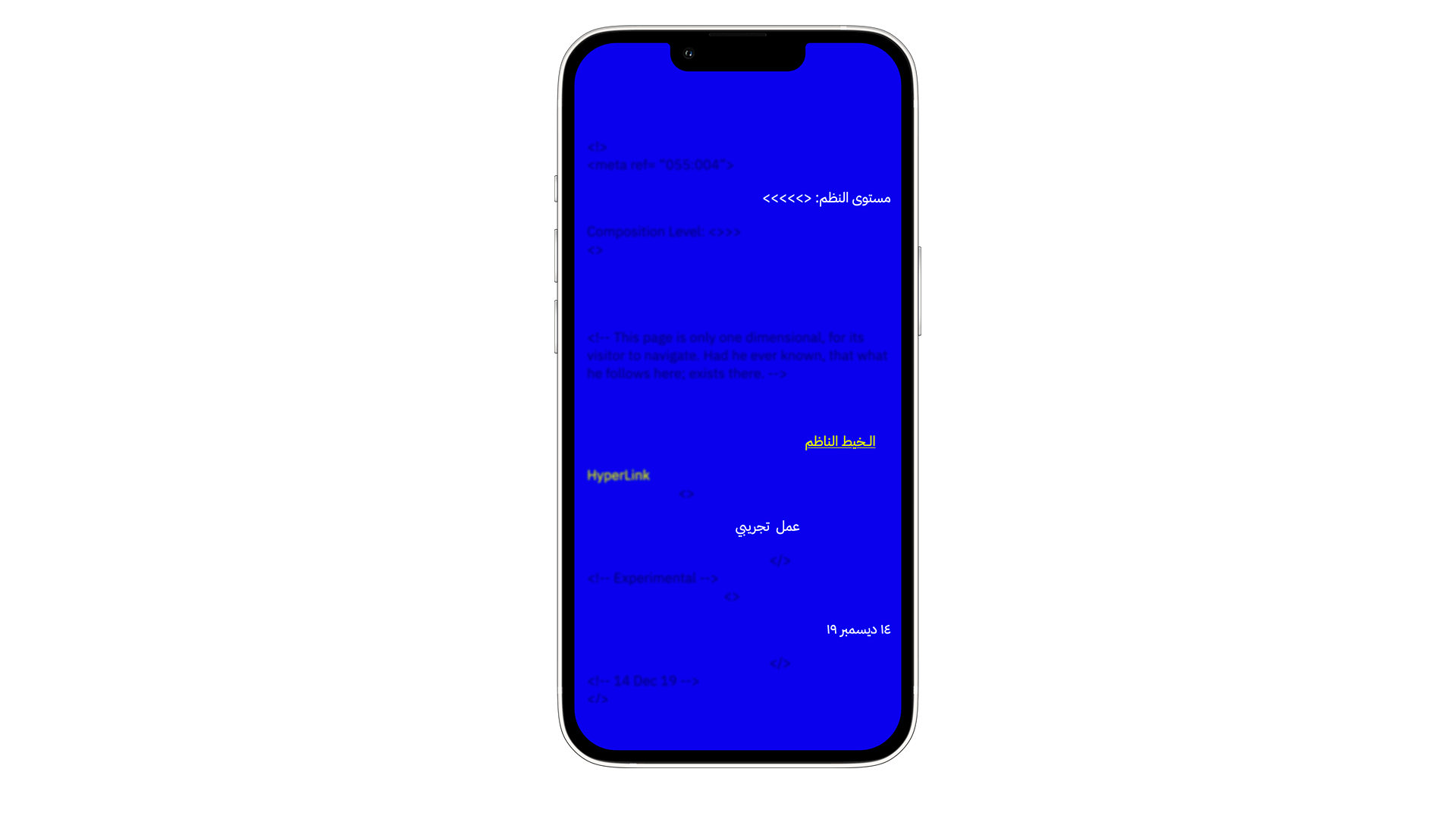HyperLink is a poetic series of multimedia speculations on the links between the Arabic language and computer languages.
HyperLink v2.0:
The Separated

«Do they not ever reflect on camels— how they were ˹masterfully˺ created»
[Qur’an 88:17]
In Arabic, camels are called “Jamal” — sharing the same root with “Jameel” or beautiful.
The craft of the Arabs during their Jahiliyyah (pre-Islamic/ignorance) was their spoken language and poetic memory. The Quran directly challenges their language, saying: “And if you are in doubt about what We have sent down upon Our Servant [Muhammad], then produce a surah the like thereof and call upon your witnesses other than Allah, if you should be truthful.” [Quran 2:23] What does “produce a surah” mean? The Jahiliyyah Arabs “have heard the words of soothsayers and the words of magicians and the words of poets” yet they “have never heard such words as yours [Quran]” [Sahih Muslim]. Another challenge was set, in the Holy Quran we read: “Do they not look at the camels - how they were masterfully created?” Presenting the burden of their neglect and disregard to the mastery of creation. A bedouin once said: "the droppings of a camel denote the camel, the footprints indicate a walking man. A magnificent sky, a spacious land; would not all that prove God?"
This being said, the challenge to produce a surah is about producing a unique craft and “Nazm” — the composition of the language. Ideas come to and inspires both the Arab and the foreigner, “they are all over the place”, but to the Arab’s linguistic aspiration “it is on setting its tone, choosing the perfect word, the smoothness of its utterance, the health of its nature, the thriving of its meaning, and the excellence in its shaping.” (Al Jahiz) It is a craftsmanship endeavor as “art never improves, but that the material of art is never quite the same [sic].” (T. S. Eliot) Arabic poetry is a craft where the masters carry on using a set of roles and models from a passive agreement across generations. This conscientiousness of the spoken word continued in Islamic studies. ʻilm Usul al-ḥadīth or the fundamentals of science of hadith (the tellings of Prophet Muhammad peace be upon him) is a standard-based science that examines the tellings by setting the standards of a constant, continuous narrative; it educates the Muslim to think collectively, encourages an investigation of the teller, the telling and what’s being told. It shapes the memory of Islamic culture.
The Arabic title for this work is "Aliha Al Faseel" or The Separated Yearning To... In Arabic, The word "Aliha/Alaha" or Missed/Missing shares the same root word with the word Allah — the name of God in Arabic, a connotation that Allah — God is what the souls yearn to.
The Separated is a symbolic cross-platform (physical/web) experience reciting the story of The Seperated (Al Faseel), the camel calf separated from his mother and his longing and yearning to her. In this piece, the audience experience the journey of Al Faseel as he’s tracing the threads back to his mother.
The Separated delivers harmonious synchronized experiences. The first experience is observing the miniature of Al Faseel as a poem recitation is playing in the background describing the mother. The second experience is following the (physically) paved HTML path that cruise the blue desert. All while using a web-based platform to take action of the process of research.
The Separated is a metaphor of Arabic-speakers who, just like the calf, are separated from the mother who represents the excellent text in Arabic, the Quranic mythology views on the self and existence. The choice of words in the poem, both recited and printed, is opaque. The absurdity of finding the mother is a relentless travel through the cues left on the ground. It puts to test the role of Arabic as a language in the new formats of programming languages both in interface and encoded levels. How can we navigate in the web the way the Arabs navigated in the desert?












